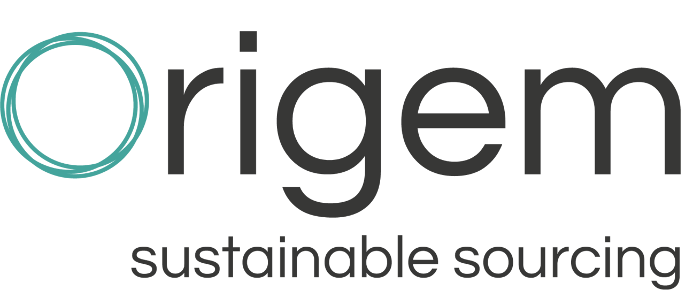We witness more and more brands (in the Luxury and Fashion sectors, but not exclusively) working on the traceability of their products and highlighting the environmental or social benefits linked to their production. But in most cases, these initiatives target only a selection of products, such as carry-over or capsule collections, and mostly focus on the materials used (production of certified or more sustainable raw materials), little on their transformation process.
We reckon these are already ambitious projects, however there is more to achieve!
To bring an impactful transformation of practices (both in terms of sourcing and processing), traceability efforts must be deployed on a large scale, but also combined with risk analysis and mitigation. This dual approach is the only way to trigger an effective and significant transition.
Regulations are also moving in this direction, with the introduction of new requirements focusing on the practices implemented in companies’ supply chains.


It is no longer just about mapping supply chains, but also of being more transparent and ensuring a due-diligence system to provide guarantees on how raw materials and intermediate products are produced.
For example, in the case of the AGEC law, textile companies having a commercial activity in France, are required to declare the countries where processing activities, up to weaving or knitting, took place.
In the case of the new zero deforestation regulation from the EU (EURD), it even goes further. Targeted companies need to collect (through a due diligence statement) even more complex information (such as geolocation of the plots of land involved at farm level) and implement due diligence on practices very upstream (annual risk assessment and potentially, implementation of mitigation measures).
When applied to all the products offered by a brand, these measures can quickly become a huge task. Supply chains usually involve many players, including subcontractors and traders. It therefore takes commitment and time (for brands and suppliers alike) to map out all the links in the chain at relevant granularity, to trace incoming and outgoing material flows, and to analyse risks. The information exists but is sometime time-consuming to track-down.
Beyond legislation requirements, here are some recommendations supporting the business case for large scale sustainable sourcing.
Map players and areas where better practices are needed.
- To transform conventional materials’ production practices, you need to start identifying the producers involved.
- Raw materials production has impact, processing as well (energy, water, chemicals). While often subcontracted, it is therefore critical to map these intermediary actors.
- This mapping at scale will allow the identification of all these suppliers and their level of risk (or sometimes – good news – their level of best practices).
Find-out suppliers willing to change and be supported in their journeY.
- Highlight existing connections in between suppliers & brands.
- Encourage/give voices to suppliers/producers committed to transition.
- Better understand /showcase their activities and offers (raw & processed materials).
Establish right and mutual matches between brands & suppliers of various tiers (producer, processors).
To build robust and sustainable supply chains, you need to know how to create fair partnerships at each link in the chain.
- Identify common values, targets, workable MOQ that will make a sustainable sourcing project work.
- Agree on risk-sharing and support (including financial) for the transition: transformation implies risks that producers/suppliers can’t bear alone: change in practices, temporary yield losses compensation, investment in alternative technologies, etc.
- Secure long-term relationships and supply.
measure progress and prove positive impacT.
- Collect original data from farm & processors (for example on environmental aspects such as biodiversity, carbon, soil health, water use…).
- Ensure the reliability of these data (for example on economics issues, ensuring premiums are paid and paid in full to farmers, etc.).
Whatever your industry (fashion but also food, furniture, cosmetics…), these challenges are a priority.
Our sustainable sourcing expertise and knowledge could help you addressing them.
Let’s talk!


to contact us:
- Camille Rojot – Co-fondatrice
camille.rojot@origem.fr - Audrey Laffaille – Chargée de projet sourcing
audrey.laffaille@origem.fr


